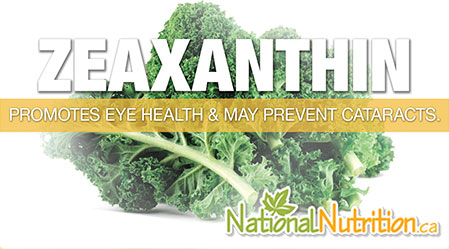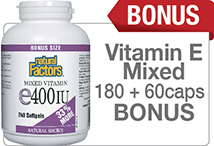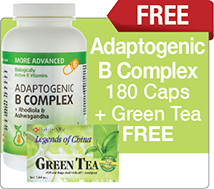
Zeaxanthin is used to promote eye health and prevent cataracts.
Zeaxanthin
Updated Mar. 09th, 2022
It is also referred to as a xanthophyll, an oxygenated form of carotenoid. Unlike alpha and beta-carotene, which are converted to retinol (vitamin A), zeaxanthin has no vitamin A activity.
Zeaxanthin is a special carotenoid, in that it and lutein are the only carotenoids found in the retina and lens of the eye. These carotenoids function to absorb blue light, protecting the eye from light-induced oxidative damage. As such, these carotenoids have been studied extensively for potential ability to slow the development of age-related macular degeneration and cataracts.
Macular degeneration is the leading cause of blindness in older populations. Studies have shown that individuals with higher intakes of food rich in lutein and zeaxanthin, at a minimum dosage of 6 mg/day, have a significantly decreased risk of age-related macular degeneration. They are also are less likely to develop cataracts or require cataract extraction. As family history plays at least some role in the development of both these conditions, these carotenoids may help to prevent a problem before it even becomes one.
Foods rich in zeaxanthin have also been shown to significantly reduce cardiovascular disease. Although high in antioxidants it is believed that it is not the antioxidant ability of these foods alone that account for its medicinal effects. Studies based on supplementation of beta-carotenes are not finding the same benefits. This is another indication that a healthy diet can often be just as effective, in some cases more effective, than supplementation alone.
Carotenoids, like zeaxanthin, are best absorbed with a small amount of fat in meals. Preparing foods high in carotenoids, for example, chopping, pureeing or cooking, with oil generally increases the bioavailability of the carotenoids they contain.
Zeaxanthin is rarely found alone in supplement form. It is normally combined with lutein in combinations geared toward eye health. It is not naturally found in the same concentrations that lutein is, and therefore usually found in much smaller amounts than its fellow carotenoid when combined in capsule form. There have been no toxicity or safety issues reported with the use of zeaxanthin.






















Thank you for the great article with careful attention to detail. My grandmothers on both sides have macular degeneration and so I want to do my eyes justice. So many nutrients increase in bioavailability when coupled with at so it's a necessary component of any meal and of course greens are goodness! I didn't know that zeaxanthan is also known as xanthophyll, an oxygenated form of carotenoid, and that zeaxanthan protects the eye from blue light as a mechanism. Thank you for teaching me something new and for the good read!
Hello Rachel,
You're very welcome! We're delighted to hear that you found the article informative and enjoyed reading it. It's great that you have a personal connection to the topic and are focused on taking care of your eyes. Indeed, consuming nutrients along with fats can enhance their bioavailability, making them more beneficial for our overall health. Greens are indeed a fantastic source of essential nutrients and can contribute to maintaining healthy eyes. Zeaxanthin, also known as xanthophyll, plays a vital role in protecting the eyes from harmful blue light. If you'd like to find more natural ways to support your eye health from macular degeneration, check out this article on the topic, https://www.nationalnutrition.ca/articles/health-concerns/mascular-degeneration/